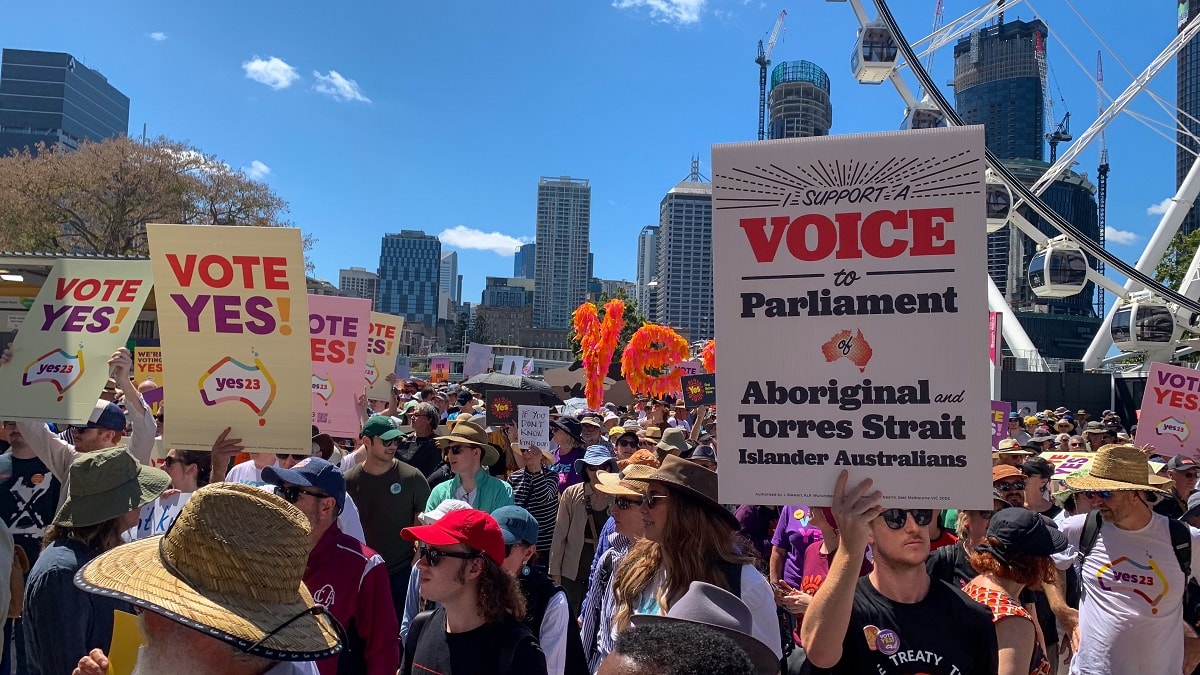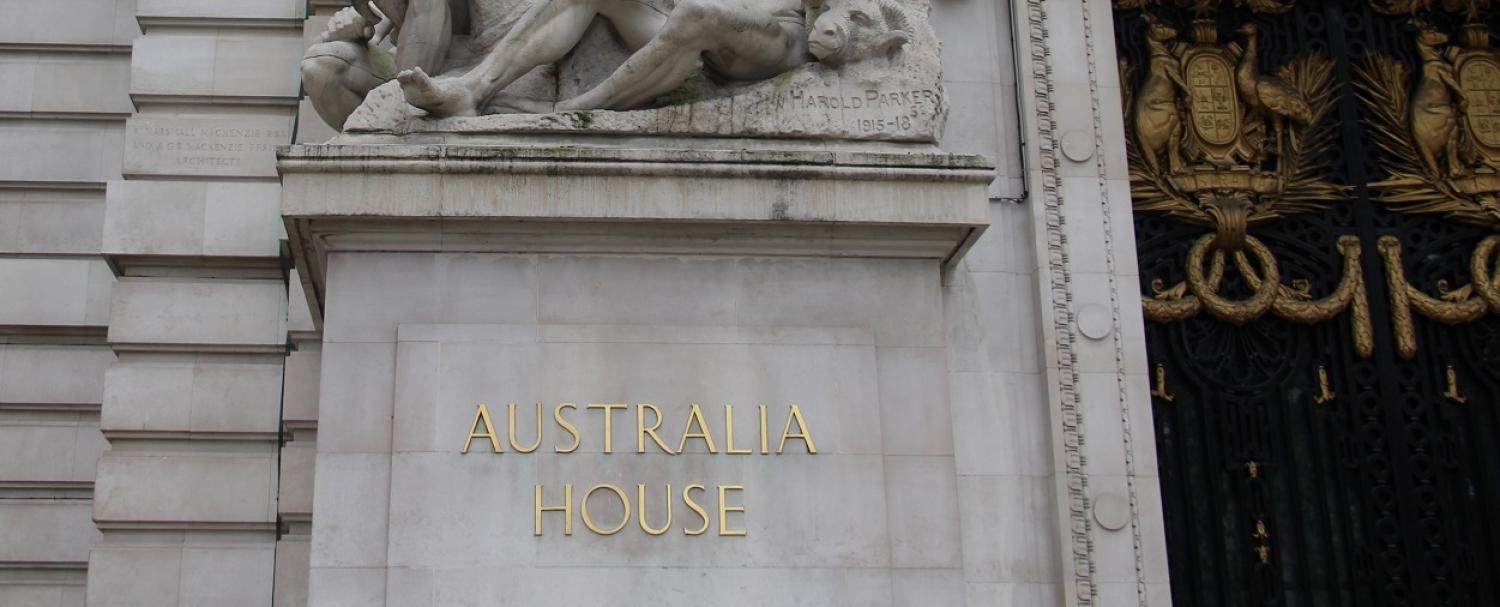“Oh, they’ve had a hard run of it, haven’t they?”
In perhaps the understatement of the century, this was the reaction of a well-meaning Englishwoman on the platform at Oxford railway station when we responded to her query as to what the “Yes” t-shirts and broad Australian accents were all about. The “they” she referred to are Aboriginal and Torres Strait Islander people.
This made for an inauspicious start to an important day as we headed to London and the Australian High Commission to vote early in the referendum – a reminder that a pervasive ignorance still holds for some about the Old Blighty and its ongoing global colonial legacy.
Arriving an hour later at Australia House, the country’s first and oldest diplomatic mission, restored our hope. The mood last Saturday was overwhelmingly positive. “Yes” campaigners outnumbered the sole “No” volunteer at least 20-to-1. A guesstimated straw poll from speaking to fellow expatriates in the queue would put the “Yes” vote at 85 per cent of ballots cast in London at the time.
Overall, Australians here in the United Kingdom were highly motivated to have their say. This was no chore as it might be during a normal election – it was a day out, a chance to actively contribute to their homeland becoming a better and fairer place. Some of this positivity was about the sheer novelty of voting in a referendum – the first for all voters aged under 42 – but most of it was borne from a genuine concern for the issue at hand.
True, Australians in the United Kingdom generally skew towards some of the “Yes” vote’s strongest demographics: young, well educated, cosmopolitan. But 15,000 kilometres distance also gives a different perspective. Australians here feel the eyes of the world – including our British brethren – upon them. There’s a real sense of opportunity to do the right thing by our First Peoples by affirming a voice in the Australian political process.

There is also something deeply significant about casting a vote in favour of the Voice from this particular place. Australia House’s location and aesthetic position it right at the heart of the British imperial project. A building of tremendous grandeur, it is an attraction in its own right and a place all Australians should be proud to visit and call their own.
But it’s also a brutal reminder of Australia’s place and implication in empire. The national and state flags adorn its exterior, each carrying the Union Flag of the United Kingdom, and in turn outnumbering the Aboriginal and Torres Strait Islander flags. The whole visage stands as a monument to when (white) Australia saw itself as an outpost of empire, seeking to prove its worth to Mother England through an extravagant façade.
It also sits just two tube stops away from Whitehall and Westminster, the nerve centre of Britain’s colonial project. Right from the moment Viscount Sydney made the decision to colonise New South Wales, this was the place from which the most consequential decisions were made about Australia and for Australians for more than a century. Of course, the people whose interests were least considered in – and who lost the most from – these decisions were those who had already called the great southern continent home for 65,000 years.
There is a true sense, then, that by voting “Yes” here in the United Kingdom, Australia is coming full circle and taking ownership of its destiny. After all, this is a vote to amend a constitution that has its origins as an Act of the British Parliament. Should the referendum be successful, that same constitution would now recognise First Nations people as Australia’s first inhabitants and institutionalise their special role in our democracy.
But even if cynicism and negativity prevail and the referendum fails, Australians should not lose hope. Voting from the United Kingdom is a compelling reminder of the strength of Australian democracy. The ease, efficiency and professionalism with which the Australian Electoral Commission and High Commission staff ran the polling booth was reassuring (the only thing missing was a democracy sausage sizzle!). Australia has the world’s strongest electoral system, even compared with the United Kingdom – which still employs the first-past-the-post method, holds elections on Thursdays, and where voting remains voluntary.
Hopefully, these strong fundamentals of Australian democracy will help deliver an historic change to the constitution. But they also help make us resilient enough to cope with those moments when progress does not follow as linear a path as we might hope.
And if you’re an Australian in the United Kingdom, vote “Yes” by 6pm on Friday 13 October at Australia House – you only need your passport or Australian driver’s licence number. Every vote will matter.
Main image: Fred Romero/Flickr

